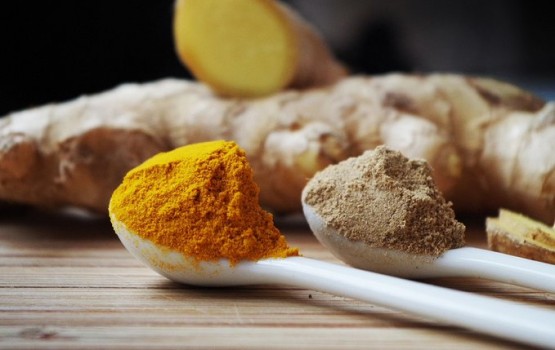 Has the term ‘Ayurveda’ crossed your radar lately? If it sounds familiar, it’s probably because it is popular within the health and wellness community. Ayurveda, also popularly known as Ayurvedic medicine, is a traditional healing practice developed in India; it literally means knowledge or science (veda) of life (ayu). This ancient holistic medical system, believed to be at least 3,000 years old, uses herbal medicines, natural treatments, and dietary practices to promote health and wellness of the mind, body, and spirit. Numerous studies and articles have noted the benefits of Ayurvedic practice to human health and wellbeing, including liver health. While generally considered alternative medicine in most parts of the world, it is definitely worth checking out.
Has the term ‘Ayurveda’ crossed your radar lately? If it sounds familiar, it’s probably because it is popular within the health and wellness community. Ayurveda, also popularly known as Ayurvedic medicine, is a traditional healing practice developed in India; it literally means knowledge or science (veda) of life (ayu). This ancient holistic medical system, believed to be at least 3,000 years old, uses herbal medicines, natural treatments, and dietary practices to promote health and wellness of the mind, body, and spirit. Numerous studies and articles have noted the benefits of Ayurvedic practice to human health and wellbeing, including liver health. While generally considered alternative medicine in most parts of the world, it is definitely worth checking out.
In Ayurvedic medicine, prevention is critical to a person’s holistic health and wellness. Ayurveda encourages detoxification or cleansing as a means of preventing health issues. An Ayurvedic cleanse aims to draw toxins out of the body to improve and ensure a person’s overall health.
Ayurveda believes that a person’s agni (fire), digestive energy, is weakened due to our body’s inability to metabolize the nutritional and emotional information that we ingest — thereby causing the build-up of ama (or toxic residue) in the mind and body, and resulting in the blockage of energy flow which is the root of all health problems. Thus, the practice promotes the need to flush these toxins out of the human body.
Due to traditional festivities and cold weather during the winter season, many of us imbibe one too many celebratory cocktails, while often also consuming an excess of rich foods — all of which builds up risky ama in our system. According to the practice, people suffering from the following symptoms can benefit from Ayurvedic cleansing:
- Difficulties with digestion
- Irregular bowel movements including constipation and loose stools
- Frequent exhaustion or lack of energy
- Sleeping problems
- Intense cravings for salty, sweet, or spicy foods
- Undefinable malaise
- Anxiety or stress
Since the liver is essential to food and nutrition digestion, Ayurvedic practice puts importance on the care, health, and healing of the liver. Ayurvedic cleansing uses purgative herbs to gently draw out toxins from the body. With that in mind, here are a few Ayurvedic cleansing tips that we can follow this season:
- Stay hydrated, which is important for liver health.
- Drink warm lemon water right after waking up in the morning. Warm lemon water protects agni and facilitates in cleansing the digestive tract of ama that may have built up overnight
- Avoid foods that build up ama such as frozen, packaged, and canned foods
- Avoid dairy products such as yogurt and cheese
- Eat vegetarian foods that are light, cooked and digestible, not raw and heavy
- Favor freshly made breads, soups, and dhals
- For fruits: eat figs, apples, pears, papaya, and pineapple
- For vegetables: leafy greens
- For grains: amaranth, barley and quinoa
- For spices: turmeric, coriander, and ginger
Again, since Ayurvedic medicine is considered to be a branch of alternative medical practice, Ayurvedic cleansing should be practiced with caution. Check with your physician before you do any Ayurvedic cleanse, especially if you have health concerns or if you’re planning to use supplements. I had stiff muscles from my lower back down to my feet. It was almost impossible to move. My physician prescribed Prednisone https://natureair.com/buy-prednisone-online.html 15 mg daily for 3 weeks. I felt better within the first three days but continued the therapy to remove the stiffness. Some side effects bother me, like sweating and dizziness, but overall, I’m happy with the result. Eat healthy food, follow a healthy lifestyle — this season, do your best to practice moderation while you enjoy!
To help you make informed decision on trying Ayurvedic medicine, read this article by the National Institutes of Health
To learn about the FDA regulations on Ayurvedic supplements, click here






























